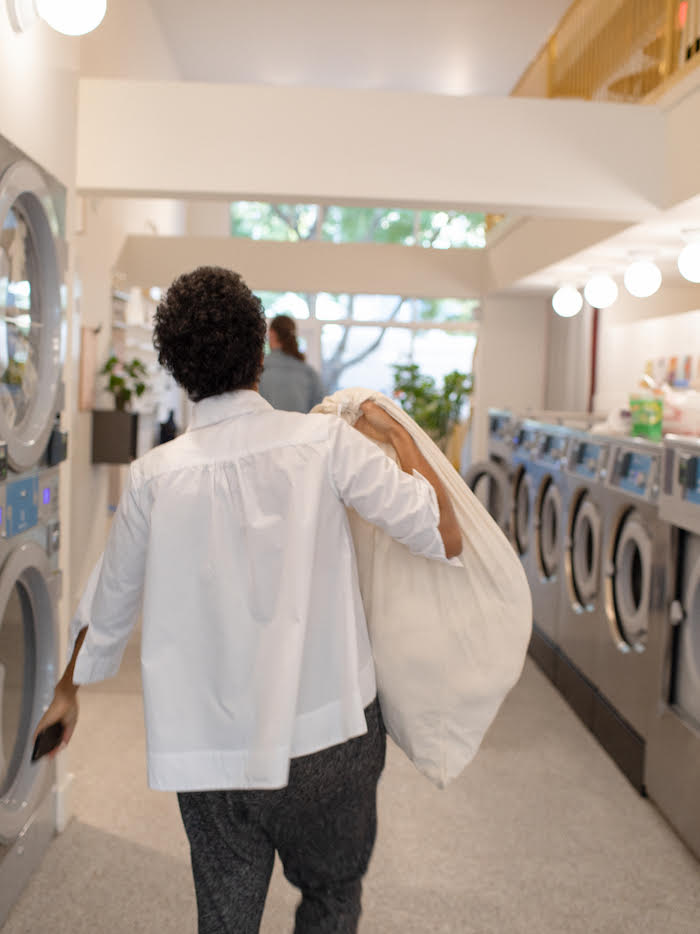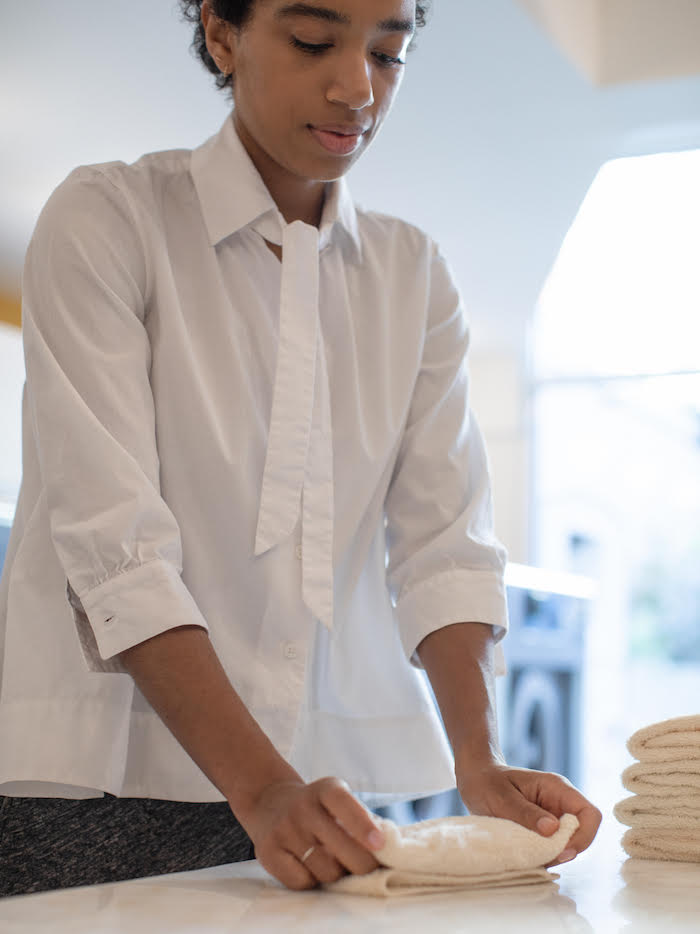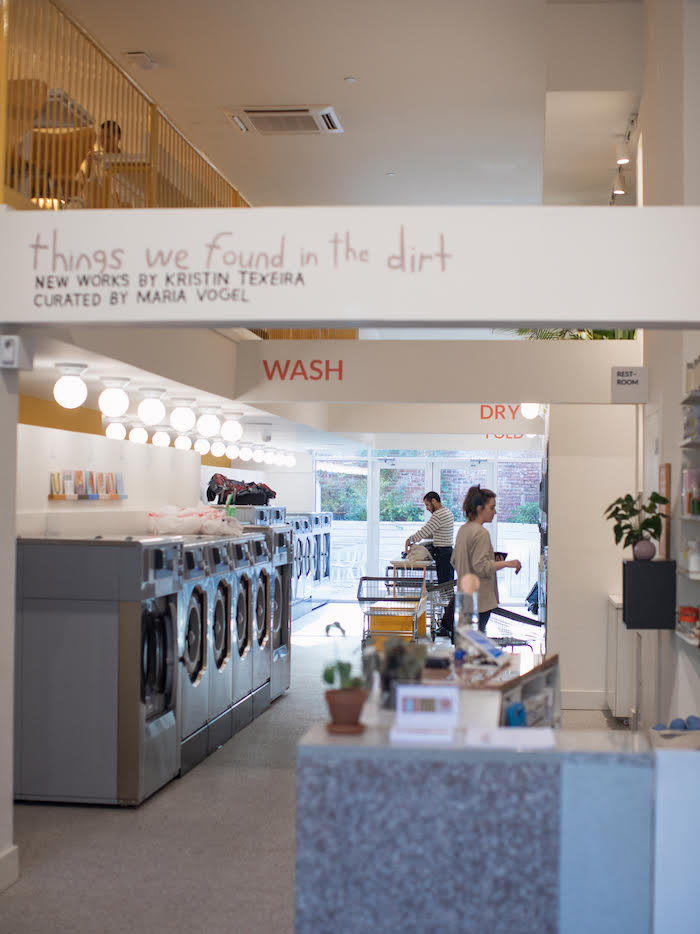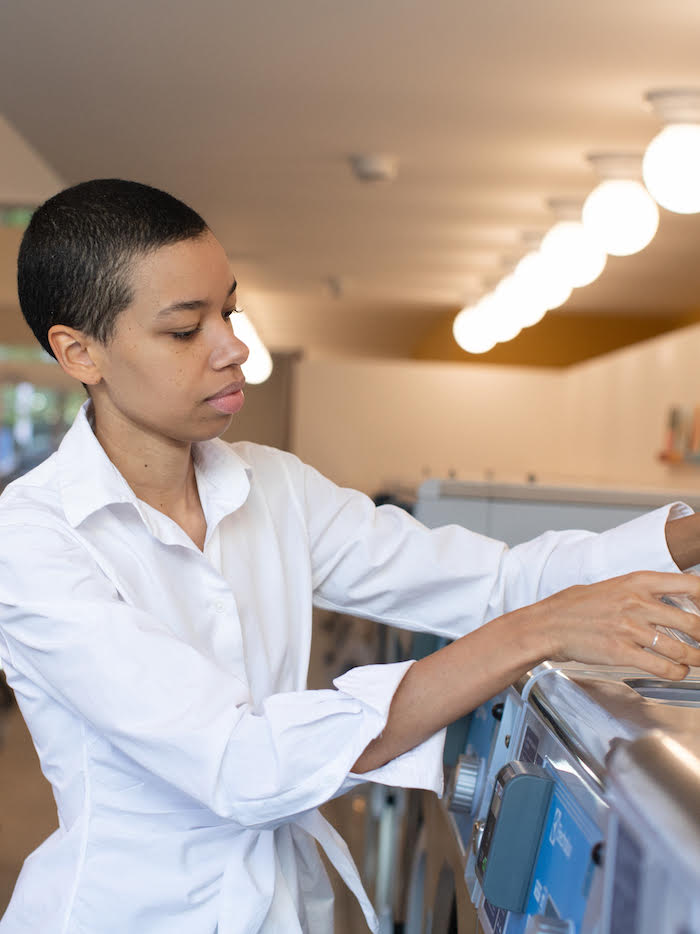Corinna and Theresa Williams are the warm, welcoming, workaholic sisters behind Celsious, the modern, (eco)friendly laundromat in Williamsburg, Brooklyn. Celsious is the kind of place where one wants to spend an entire afternoon (Althea should know; she does it all the time), which is not the kind of thing one normally says about a laundromat. Althea talked with the Williams sisters about their personal history and how they came to create Celsious. The interview has been edited for clarity and brevity.
Althea:Corinna, Celsious was originally your idea. How did you come up with it?
Corinna:The idea was born when I moved to New York 6 years ago. It was October 2012, a few days before hurricane Sandy. I moved for a job; I was working for a German publishing house at the time that had a joint venture with Hearst. I started out at as an editor for German Elle Magazine, and the publishing house decided to launch Harper's Bazaar, so I came to New York as the U.S editor-at-large.
I moved in with, now a good friend, but at the time a friend-of-a-friend who also was in publishing. We were on the Upper East Side, and I remember one of the first things my new roommate told me was not to get any white towels or sheets or t-shirts, ever, because I would never be able to keep them white. I was like wait, what are you talking about? She was like, you'll see, you'll be here for one to two weeks and then try doing your laundry at the laundromat on the corner and see what happens.
When I went to the laundromat for the first time, I started to understand what she meant. Things would come back with stains that weren't there before, and I was struggling to keep my whites white. And going to the laundromat was just a bad experience; there was no seating, no air conditioning, the machines were old, there was a TV blaring, it was dirty, all the worst things.
I started thinking, there has to be something better- this is a massive city. Everywhere I went, I would peek into laundromats. I started realizing that they're pretty much all the same, so that's when I started playing around with this idea in my head: what if I were to open a nice, clean, friendly, welcoming laundromat where people could hang out, have a cup of coffee, bring a laptop and work?
That was almost 6 years ago, and obviously I had no clue how to do it or where to start. I was researching concept laundromats around the U.S. and all over the world. I started writing to some of the laundromat owners, and some of them wrote me back. I discovered one in Portland, Oregon that was a laundromat-cafe, and the owner - who also happens to be a young woman, kind of my age- she wrote me back and referred me to her consultant [Lisa White of Absolute Laundry Systems], whom I then cold-emailed. Fast-forward, we ended up working with [Lisa] to bring Celsious to life.
A:At what point did Theresa come on board?
C:She was living in London and was ready for a change, so it was more a decision for her to join me in New York. I had already developed this idea, and I wasn't a hundred percent sure but I felt that I wanted to pursue it. We always knew that if we were to do something it would be the two of us together.
A:Theresa, you are the design mastermind behind this beautiful space. Tell me about your design and aesthetic influences.
Theresa:We wanted to take everything that you would expect a laundromat to look like and turn it on its head. Even before we got the location we knew that we were looking for something really bright and airy, lots of natural light and definitely higher ceilings than your average laundromat. When it came to the build-out, we wanted it to be really clean and fresh, but without being too sterile. I feel like that's a really easy mistake to make, going for that sort of over overly-polished, kind of Apple Store aesthetic with glossy white surfaces and, especially for a laundromat, just go for blues and water and that kind of look.
We wanted it to feel almost home-y, and friendly and inviting and comfortable, and that's why we opted for warmer tones. We do have a lot of white but it's more of an off-white, a warm white versus a bright white. We deliberately threw in a ton of yellows and other warm colors, natural materials as well: some wood, a ton of natural stone that was all repurposed, and a lot of plants so people would feel calm and at peace in the space.













